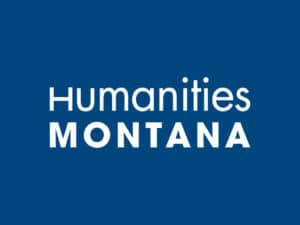Letter from the Director
Soon after the governor issued stay-at-home orders last spring, Humanities Montana surveyed the state’s cultural infrastructure—the museums, libraries, historical societies, and educational entities that provide the essential services of keeping ideas, stories, and conversations alive and well in our state. At that time, we were alarmed to find that 77 percent of the organizations we heard from risked closure as a result of the pandemic. With funds from the National Endowment for the Humanities, we were able to distribute almost $420,000 in CARES Act grants to 95 cultural organizations throughout the state in 2020.
Over a year later the outlook is not as dire, but Montana cultural organizations are still recovering from the pandemic. From the 50 cultural organizations that responded to a needs assessment survey we conducted just last month, we found that:
- 38% are partially reopened, with limited hours and services
- 36% are fully reopened
- 12% remain closed to the public but are providing alternative programming or services
- 4% remain closed and unable to fulfill their mission
All organizations told us that loss of revenue due to canceled fundraisers and programs is their biggest challenge to recovery. Paying rent, utilities, and other operating expenses remains an impediment to recovering from the pandemic, especially for smaller organizations with annual budgets of less than $100,000.
This summer, Humanities Montana will help our state’s cultural infrastructure respond to and recover from the coronavirus by distributing $500,000 in Sustaining the Humanities through the American Rescue Plan (SHARP) funds. These funds are available to Humanities Montana through the National Endowment for the Humanities. A formal announcement along with SHARP grant guidelines and the application will be available on our website, www.humanitiesmontana.org, later this month.
I was dismayed, but not at all surprised, that some survey respondents told us their own emotional, social, and mental health was suffering because of the stresses to their organization caused by the pandemic. Our surveys are anonymous, so I cannot follow up with these individuals personally. But if you are reading this newsletter, please know that we at Humanities Montana are here for you and that the work you are doing to bring ideas, stories, and conversations to your communities is valued and remains essential as Montana recovers from the pandemic.
Sincerely,
Randi Lynn Tanglen, Ph.D.
Executive Director




